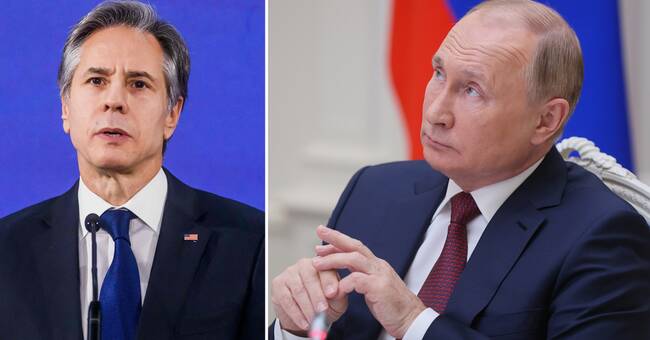The war of words between Russia and NATO has intensified during the NATO summit in Riga, which lasted two days.
The meeting ended on Wednesday, but many of the representatives will continue to Sweden for a meeting with the European Organization for Security and Co-operation in Security (OSCE) outside Stockholm on Thursday.
Financial threats
At a press briefing in connection with the NATO meeting, US Secretary of State Antony Blinken said that they have information about Russia's plans:
- We are deeply concerned about evidence showing that Russia has drawn up plans for significant aggressive movements against Ukraine, plans that include attempts to destabilize Ukraine from within, as well as plans for major military operations.
- We are clear towards the Kremlin.
We will respond with determination, which includes a number of economic measures (aimed at Russia) that we have previously avoided using, writes AFP.
Demands from the Kremlin
From Moscow came equally intense initiatives.
Russian President Vladimir Putin is demanding guarantees that NATO will not expand further east, and that the military alliance will not place weapons near the Russian border, writes AP.
Putin also wants detailed talks with Western countries on NATO's approach to Russia.
In the statement, Putin said Moscow may need "legal guarantees for the country's security."
But Ukraine's Foreign Minister Dmytro Kuleba reiterated at the NATO summit the Ukrainian stance that Russia could not stop closer contacts between NATO and Ukraine:
"Russia has no say in such discussions", Kuleba said at a meeting with the press.
Foreign Minister Kuleba claims during the NATO summit that Russia has gathered 115,000 troops near the Ukrainian border, including on the annexed Crimean peninsula and in the two regions in the east that are occupied by pro-Russian separatists.

